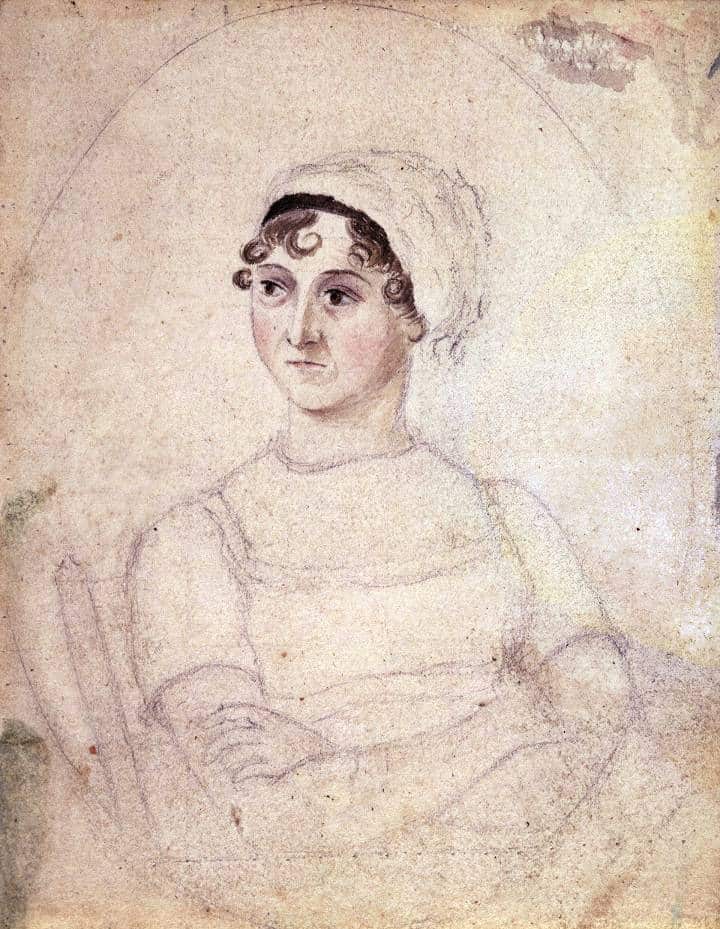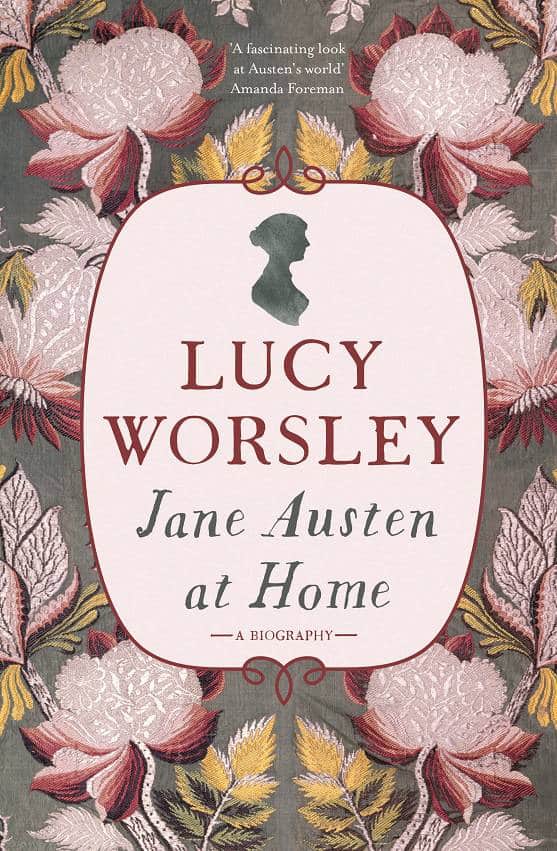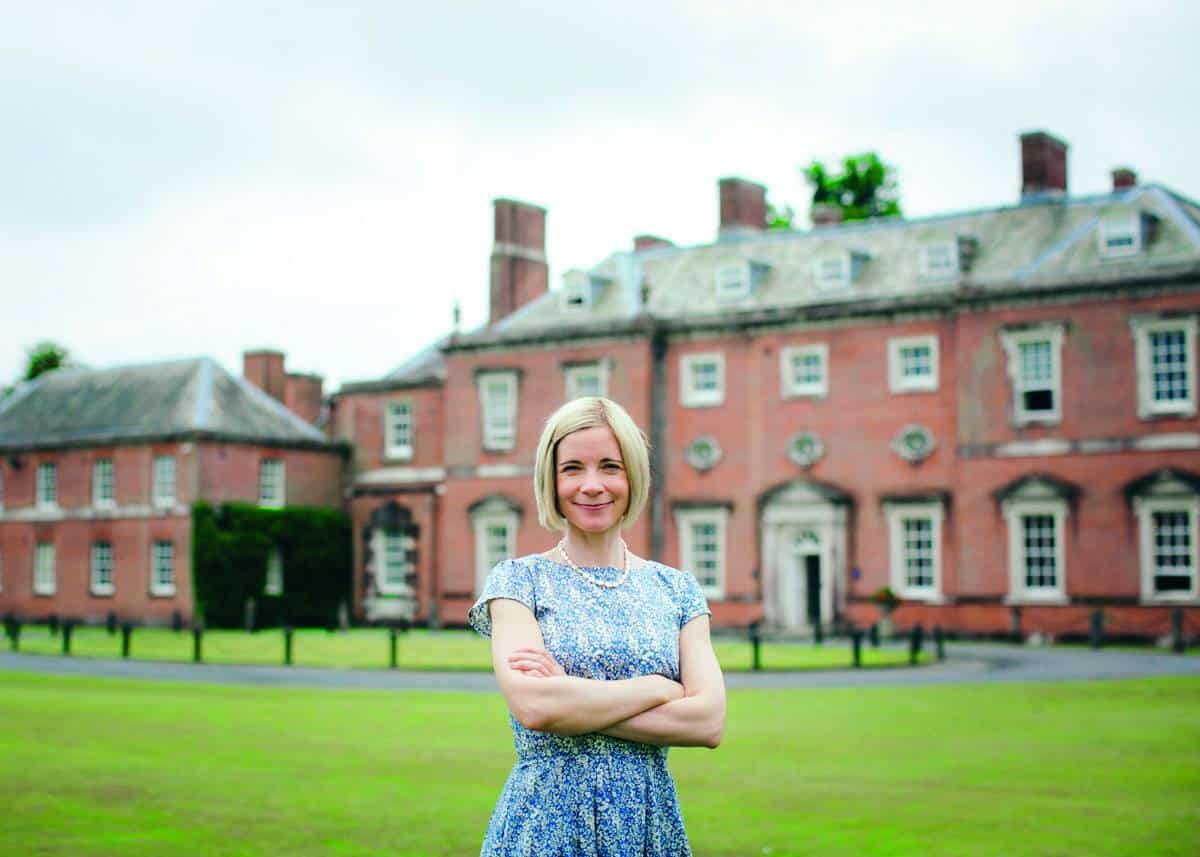DESPITEÂ having died when she was only 41 years old, it’s fair to say that Jane Austen has made a vital and long lasting impact on not only the literary world but that of feminism too.
Her literary canon, which includes Pride and Prejudice, Persuasion and Emma, penned between 1812 and 1818, have been on the keen reader’s radar for the past two centuries with some of her works being made into acclaimed theatrical productions and big Hollywood blockbusters, too.
The reasons for their longevity are simple; they’re not just great stories but are also a wonderful social commentary and important cultural reflection of what life was like in the 1800s – especially for women.
So it’s not really surprising to learn that one of the UK’s best-known female historians and BBC presenters Lucy Worsley is currently touring UK theatres extolling the virtues of Jane Austen and her work ahead of her bicentenary.
“She’s like Shakespeare,” declares Lucy who is also Chief Curator of Historic Royal Palaces as we chat about her forthcoming Jane Austen shows at the EM Forster theatre in Tonbridge on Friday and Saturday (May 19 and 20).
“Her novels are great art and you can read them in lots of different ways. I personally read them as somebody who’s inspiring for other female writers and took a lot of risks in order to have a life that was creative.”
Lucy says her idea for a series of live shows came about after she wrote her latest book entitled Jane Austen At Home (published on May 18) which will also be accompanied by a BBC2 TV series of the same name later this month.

“This is something I love doing. I love going out and giving history talks to history lovers,” says Lucy.
“I’m going to give them a PowerPoint presentation. Now, it doesn’t sound like the most exciting thing in the world but I think my PowerPoint presentations reach the parts others don’t,” she gently jests.
“I’m going to describe how Jane Austen’s life was a bit at odds with the idea you might have had about it if you’ve read or seen the film versions of Pride and Prejudice and Sense and Sensibility, where everybody is living in a grand country house and travelling about in carriages and enjoying a luxurious lifestyle.
“Poor Jane Austen didn’t have a luxurious lifestyle at all! I think in some ways her life was quite a struggle. She was always economically dependent and felt she had to maintain appearances. She did have quite a few wealthy relatives who led a Mr Darcy type lifestyle but she was their poor relation so once you know about her you understand why she became a novelist. She was very much on the outside looking in.”
‘This is something I love doing. I love going out
and giving history talks to history lovers’
As well as Lucy explaining where Jane Austen lived and what influenced her work when she appears at the EM Forster theatre, she will be opening up the floor for a Q&A session with the audience so they can pose questions to her.
“I always enjoy doing that. People can ask me anything they like – although when I do these events people ask me if I have [fellow TV historian] Dan Snow’s phone number!”
Interacting with the general public about her love of history is something Lucy says she enjoys doing on a regular basis.
“It’s an important part of what I do. I’m a museum curator at heart so a lot of the talks I do will be at places such as the Tower of London or Hampton Court. Does it sound too grand if I call them my palaces?’ Probably!” she jokes.
So how did Jane Austen’s houses compare to the royal piles she’s more used to exploring? “I went on a wonderful road trip all around the country and slept in as many of her houses as I could and they’re not at all grand,” she reveals.
“This is what struck me: More often than not Jane was living in rented accommodation, or worried about paying the rent, or living in the homes of other people.”
Jane Austen’s final house was in Chawton in Hampshire which is where the official bicentenary celebrations will take place next week (on May 24) to mark the exact day 200 years on from when Jane Austen left her last home.
 “She went into Winchester for her hospital treatment and that’s where she died. She was only 41. It’s shocking isn’t it? When I was working on the book I turned 42 and I thought ‘oh my goodness I have not yet written six world changing novels’!”
“She went into Winchester for her hospital treatment and that’s where she died. She was only 41. It’s shocking isn’t it? When I was working on the book I turned 42 and I thought ‘oh my goodness I have not yet written six world changing novels’!”
Has Lucy been a fan of Jane Austen since she was young? “Oh yes! In many ways you can get life advance from her novels can’t you? The underlying message of them is ‘look how rubbish it is that women feel they have to get married for money,’ that’s what I personally take away. I suppose I like to think of Jane Austen as being like a sneaky saboteur.
“Jane Austen chose not to get married – so she wasn’t some unhappy spinster. And I like to think that she turned down the man with the mansion because she preferred to carry on writing her novels. She was sitting there writing these books and blowing the locks off the doors that kept women like her trapped in their houses.”
Which one is Lucy’s favourite book? “Emma,” she swiftly responds. “It’s not everybody’s favourite; a lot of people would say Pride and Prejudice but to me that’s entry level Austen. Emma hooks you and a lot of people dislike Emma because she’s quite uppity and too full of herself but I quite like stories about difficult heroines who aren’t easy to like.”
Despite rummaging around Jane Austen’s old houses and haunts, the personal side of her life is still something of a mystery says Lucy.
“I think she was a very private person and that’s why her houses are helpful because at least they survive and give you something to work with.”
Lucy Worsley’s talk Jane Austen at Home will be held at the EM Forster theatre on May 19 and 20 from 7.30pm. Tickets cost from £24. For more details please visit www.boxoffice.tonbridge-school.co.uk
Jane Austen’s Tonbridge Connection
Vivian Branson is a member of the Jane Austen Society. Here she reveals the author’s links with the town…
“Jane’s great-grandmother, Elizabeth Weller, was born and brought up here. Elizabeth married John Austen IV of Broadford, Horsmonden, to whom she bore seven children before he died leaving her in considerable debt. She procured employment at Sevenoaks School as housekeeper, in return for which the five sons living with her were educated. Three of her children returned to Tonbridge, including Jane’s grandfather, William, who became a surgeon. Jane’s father, George, was educated at Tonbridge School, later becoming Under Master and Usher to the Headmaster James Cawthorn who determined that Tonbridge School should establish an extensive library; so it’s probably Cawthorn’s influence from where George’s love of books came.
I had never read any of Austen’s books until my Godmother asked if I would like to join her at the AGM held annually at Chawton where Jane Austen lived. That was the beginning of a wonderful journey more than fifty years ago and I have been a member of the Jane Austen Society ever since. I view Jane Austen as a brilliant writer who has fascinated tens of thousands of fans for more than 200 years. In terms of a favourite novel, well that changes. Today it may be Mansfield Park, tomorrow it may be Sense and Sensibility or it could be Sanditon, which she never finished. Such is the brilliance of Jane Austen that one can never be sure which is the favourite.”
Vivian tweets daily @JaneAustenKent and organises Austen’s Birthday Celebration at St Peter & St Paul Church every December.








